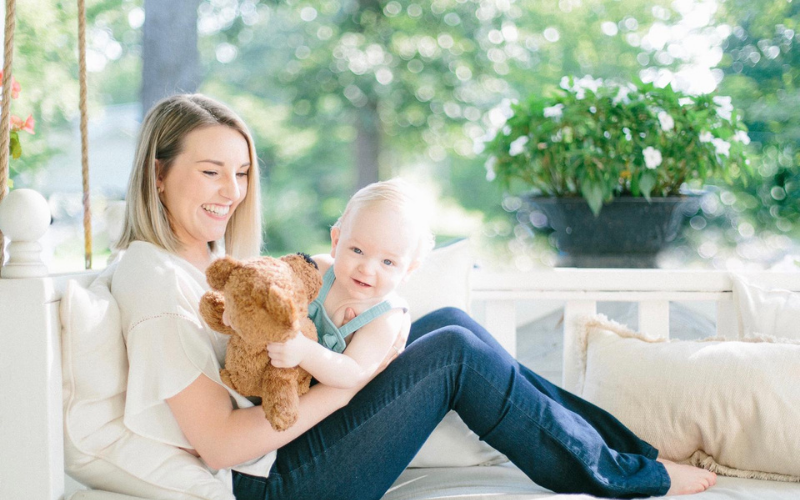Do you Sometimes Fall into the Toddler Tornado of Emotions?
There has been a style of parenting that has become more and more popular (and even sometimes controversial) in the past five years. Though it’s been scientifically proven for decades, it seems to be getting the attention of parents everywhere in recent times. This style of parenting is called positive, or gentle, parenting. Positive parenting focuses on allowing your child to process their emotions in a healthy way that is in line with their level of development. To allow them to do this, you take a gentler approach to parenting, such as taking the time to figure out why your toddler is throwing a tantrum and speaking to them calmly about it instead of immediately erupting in anger. Writing that out actually makes me giggle a little bit because it must sound so unrealistic! Toddlers have absolutely no control over their emotions, how are we supposed to always react calmly? Well, in this case, remind yourself that you’re right, toddlers have absolutely no control over their emotions, and the majority of the time, they are going to react more dramatically than adults do.
In a recent article written by Parenting for Brain, it was discussed that thousands of studies have shown that using a more positive and gentle approach to parenting and discipline yields positive outcomes in terms of the child’s behavior and emotional growth.
Did you know that part of our brain called the prefrontal cortex is the center for all emotional regulation and decision making? Did you also know that the prefrontal cortex doesn’t even begin developing until around four to five years old? YEP, you read that right! That essentially means that most children aren’t even going to begin having a sense of control when it comes to their actions and emotions for the first five years of their lives. But it doesn’t stop there, the prefrontal cortex doesn’t fully finish developing until your mid-twenties! It may seem unrealistic to talk calmly to a child who is throwing a tantrum, but it’s even more unrealistic for us to expect them to respond to every situation like a wise, mature adult would.
{Just a note on that… 👉 The prefrontal cortex is also exactly the part of the brain impacted by poor and broken sleep, it is even more important to fix sleep issues}
When studies were done on parents who are more uninvolved and unresponsive to their children, they found that they raised children with a lack of self-regulation, which further pushes the child’s behavioral regulation off track. If you’re upset and don’t understand what’s going on and your friend that was with you is standing there yelling at you, screaming at you to straighten up and pull it together, is that going to make you feel safe and validated in your emotions or is it going to make you feel like you should just bury them deep? With positive parenting, we are raising children that were shown that it’s okay to feel the way you do and how important communication is. We as parents don’t NEED to punish our children to correct their problematic behavior. We can use communication and calming techniques to help them work through the reason why their behavior wasn’t good and the good things that come from behaving appropriately. As a result, the parent-child dynamics change, and their relationship improves. Furthermore, mutual respect and open communication strengthen the parent-child relationship.
When it comes down to it, there is always going to be a reason why children throw tantrums or misbehave. The reason may seem silly to you, but to them, it could mean the world. It’s vital for us to put ourselves in our children’s shoes and try to see things from their perspective before reacting. If we can’t address the cause directly, we are still giving our children the validation they need that their needs are acknowledged. Having that emotional support from family is often more important than having the actual request met. This leads to them moving on from the situation without the need to misbehave. Yes, you may still have a cranky child for a bit, but they won’t feel the urge to act out to feel heard. Every single thing we do as parents impact our child, whether we realize it or not. Positive parenting is another great way to ensure that we are raising good people in a tough world.
I use positive parenting techniques in my work Sleep Coaching toddlers and school-age children who are not sleeping soundly through the night. If your child isn’t sleeping well and you just can’t seem to solve the mystery as to why, schedule a discovery call with me, Melanie Sawyers, I can help and support you on your journey to sleep, in a respectful and positive way. Learn more about Melanie here.
With Love, Melanie

